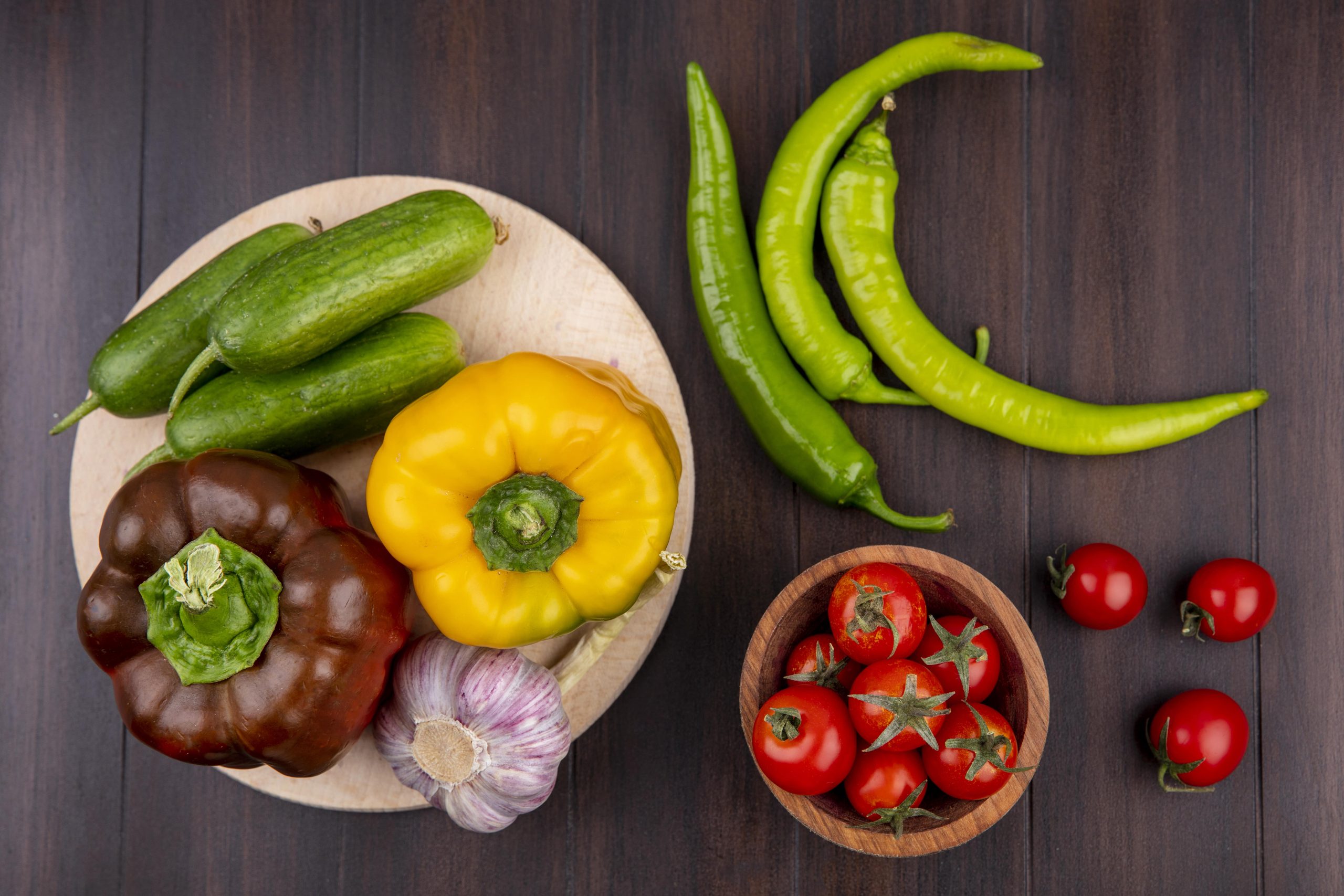Nightshade vegetables—such as tomatoes, potatoes, peppers, and eggplants—are common in many diets. However, their reputation regarding inflammation and arthritis symptoms is mixed. Some people believe that nightshade vegetables exacerbate inflammatory conditions, while others find them beneficial. This article delves into the relationship between nightshade vegetables and inflammation, examining whether they can help manage arthritis symptoms.
What Are Nightshade Vegetables?
Nightshade vegetables belong to the Solanaceae family, which includes over 2,000 species. Common nightshade vegetables include:
- Tomatoes: Rich in vitamins C and K, and lycopene, an antioxidant with potential anti-inflammatory properties.
- Potatoes: A staple food that provides essential vitamins and minerals, particularly vitamin C and potassium.
- Bell Peppers: High in vitamins A and C, along with other essential nutrients.
- Eggplants: Contains antioxidants like nasunin, linked to various health benefits.
Nutritional Profile
Nightshade vegetables are packed with nutrients:
- Antioxidants: Help neutralize harmful free radicals, potentially reducing oxidative stress and inflammation.
- Vitamins and Minerals: Include essential vitamins such as A, C, and certain B vitamins, plus minerals like potassium and magnesium.
- Fiber: Supports digestive health and helps manage weight, which is crucial for those with arthritis.
Nightshade Vegetables and Inflammation
The Concerns
Some individuals, particularly those with arthritis, report that nightshade vegetables worsen their symptoms. This perception may stem from alkaloids—natural compounds found in nightshades like solanine and capsaicin—that can irritate sensitive individuals, possibly leading to increased inflammation.
Scientific Evidence
While anecdotal evidence links nightshade vegetables to elevated inflammation, scientific studies are inconclusive. Some research indicates that nightshade vegetables do not significantly affect inflammatory markers. However, individual responses to these vegetables can vary greatly, emphasizing the need for personal tolerance assessments.
Potential Benefits for Arthritis Symptoms
Despite concerns, many nightshade vegetables offer benefits that may help manage arthritis symptoms:
1. Anti-Inflammatory Properties
Nightshade vegetables, especially tomatoes, are high in lycopene. Research suggests that lycopene can help reduce inflammation and oxidative stress, potentially benefiting those experiencing arthritis.
2. High Nutritional Value
Nightshade vegetables are nutrient-dense, providing a range of vitamins and minerals while being low in calories. This can support healthy weight maintenance, alleviating stress on joints—a crucial factor in managing arthritis.
3. Variety in Diet
Including nightshade vegetables promotes dietary diversity, which is important for overall health. A varied intake encourages nutrient adequacy and may enhance immune function, playing a significant role in managing inflammation.
Also Read: No Mango in Mango Juice: 8 Surprising Reasons This Packaged Drink Can Harm Your Health
Personal Approach: Monitoring Your Response
Individual responses to nightshade vegetables can differ greatly. To determine their impact on your arthritis, consider these strategies:
- Food Diary: Keep a record of your food intake and any symptoms to identify patterns related to nightshade consumption.
- Moderate Consumption: If you suspect nightshade vegetables may trigger symptoms, try consuming them in moderation and observing changes.
- Consult Professionals: Speak with healthcare providers or registered dietitians for personalized insights and dietary recommendations.
Alternatives to Nightshade Vegetables
If nightshade vegetables worsen your arthritis symptoms, consider these alternative foods that offer similar nutritional benefits without potential drawbacks:
- Leafy Greens: Spinach, kale, and Swiss chard are rich in antioxidants and anti-inflammatory compounds—excellent substitutes for nightshade vegetables.
- Cruciferous Vegetables: Broccoli, Brussels sprouts, and cauliflower not only provide abundant nutrients but may also aid inflammation management.
- Root Vegetables: Sweet potatoes and carrots are nutritious options not related to nightshade vegetables.
Additional Considerations
Maintaining a balanced, nutrient-rich diet is crucial for overall health, especially for individuals with arthritis. To enhance your dietary choices, consider the following tips:
- Incorporate Omega-3 Fatty Acids: Foods like fatty fish, flaxseeds, and walnuts can help combat inflammation.
- Prioritize Whole Foods: Focus on whole grains, lean proteins, and a variety of fruits and vegetables, incorporating nightshade vegetables and others.
- Stay Hydrated: Proper hydration supports overall health and may reduce joint stiffness.
Conclusion
The relationship between nightshade vegetables and inflammation is complex, especially concerning arthritis symptoms. Some individuals report heightened symptoms related to their consumption, while scientific evidence remains inconclusive. Many people find that nightshades can be safe and beneficial.
Ultimately, being attentive to your body, monitoring responses, and consulting with healthcare professionals can help you make informed dietary choices. Emphasizing a balanced diet rich in various fruits and vegetables, whether nightshades or alternatives, is essential for managing arthritis and promoting overall health.
FAQs About Nightshade Vegetables and Arthritis
1. Can nightshade vegetables worsen arthritis symptoms?
Some individuals report experiencing increased pain or inflammation after eating nightshade vegetables. However, responses vary, and many find them beneficial.
2. What should I do if I suspect nightshades trigger my arthritis symptoms?
Consider keeping a food diary to track your intake and symptoms. Reducing nightshade consumption and monitoring changes can help you identify any connections.
3. Are there any health benefits to eating nightshade vegetables?
Yes! Nightshade vegetables are rich in vitamins, minerals, and antioxidants, which may help reduce inflammation and provide essential nutrients.
4. What alternatives can I try if I can’t eat nightshades?
Leafy greens, cruciferous vegetables, and root vegetables such as sweet potatoes are excellent substitutes that offer comparable nutritional benefits.
5. Should I consult a healthcare professional regarding my diet and arthritis?
Absolutely! Speaking with a healthcare provider or registered dietitian can give personalized insights and help you create a balanced eating plan tailored to your needs.
By weighing the potential benefits and drawbacks of nightshade vegetables, you can make informed choices that support your health and well-being.

